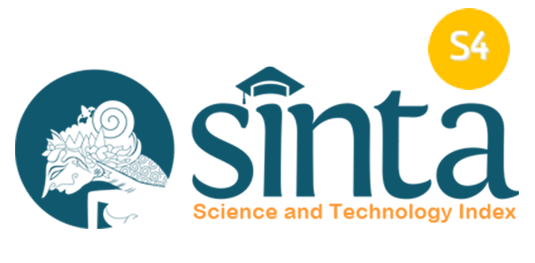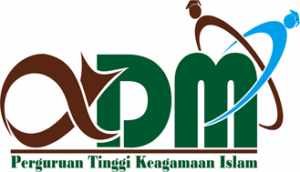Examining secondary school teachers’ in – service training through bachelor of education degrees block release part – time programme in Zimbabwe
Abstract
Similar to its influence on other spheres of life, globalisation is changing the teaching and learning context, causing universities to explore new curriculum formats that may offer better fit with diverse student learning needs. One such format in the intensive mode delivery (IMD) category is the block – release part – time degrees programme, which comprises conventional traditional approaches and open and distance learning aspects. This case study sought to find out if the Bachelor of Education (BED) Degrees block release part – time programme offered in Zimbabwe by University R at Teachers’ College M as a centre, was developing desired teacher competences. Through structured interviews, data were collected from teacher educators and in – service teachers / teacher candidates in the programme. Coding and data reduction cumulated into themes upon which interpretation was based. Findings show that the BED block release part – time programme is a viable option which equips in – service teachers with degree qualifications for effective secondary school teaching and learning. However participants raised concerns about lack of time for them to develop competences in using learner – centred strategies. Teacher educators’ modelling of application of learner – centred teaching and learning strategies and teaching and learning media were identified as empowering in developing desired competences for in – service teachers to facilitate learning of diverse learners. However, based on findings, it is recommended that textbooks, time and teaching and learning media which currently lack, should be made available in the block release part – time degrees programme at University R centres, to ensure that in – service teachers are fully prepared to facilitate learning, through learner – centred strategies.
Keywords
Full Text:
PDFReferences
Adria, M., and T. Rose. (2004). “Technology, Preprocessing, and Resistance – A Comparative Case Study of Intensive Classroom Teaching.” Journal of Education for Business 80 (1), 53 – 60.
Allen, E., and Seaman, J. (2017). Digital Learning Compass: Distance Education Enrollment Report 2017. Babson Survey Research Group, e – Literate, and WCET.
Beattie, K. & James, R. (1997). Flexible Coursework Delivery to Australian Postgraduates: How Effective is the Teaching and Learning?, Higher Education, 33(2), 177 – 194.
Berlach, R. G. (2004). Outcomes-Based Education and the Death of Knowledge. Paper Presented at the Australian Association for Research in Education, The University of Melbourne. Melbourne
Bennie, S,. Ranaghan, K., Deeks, H., Goldsmith, H., O’Connor, M., Mulholland, A., and Glowacki, D. (2019). Teaching Enzyme Catalysis Using an Open Source Framework for Interactive Molecular Dynamics in Virtual Reality. ChemRxiv. Preprint.
Burgess, J. R. D and Russel, J. E. A (2003). Effectiveness of Distance Learning Initiatives in Organisatons . Journal of Vocational Behaviour, 63, 289 – 303.
Cawelti, G. (1994). High School Restructuring: A National Study. Arlington, V. A.: Educational Research Service.
Casley, D. J. and Kumar, K. (1997). Project Monitoring and Evaluation in Agriculture. Washington D. C.; World Bank.
Conrad, P. A. (1996). Attributes of High-Quality Intensive Course Learning Experiences: Students' Voices and Experiences. College Student Journal, 30, 69-77.
Daniel, E. L. (2000). A Review of Time – Shortened Courses Across Disciplines. College Student Journal. 34, 298 – 308.
Davies, W. M. (2006). Intensive Teaching Formats: A review. Educational Research. 16(1), 1 – 22.
Evans, K. (1994). Research on OBE: What We Know and don’t Know. Educational Leadership, 51(6), 79 – 82.
Finger, G. & Penney, A. (2001). Investigating Modes of Delivery in Teacher Education: A Review of Modes of Delivery. Paper presented at the Annual Conference of the Australian Association for Research in Education, Fremantle, Western Australia.
Gose, B. (1995). One-Course-at-a-Time ‘Block Plan’ Re-Examined by College that Adopted it 25 Years Ago. The Chronicle of Higher Education, 41(47), A28.
Haider, S. (2018). Anglo-American Cataloguing Rules (AACR). Available online at https://www.librarianshipstudies.com/2018/12/anglo-american-cataloguing-rules-aacr.html
Harvey, M., Power, M., and Wilson, M. (2017). A Review of Intensive Modes of Delivery and Science Subjects in Ausralian Universities. Journal of Biological Education. 51(3), 315 – 325.
Jan, H. (2017). Teacher of 21st Century: Characteristics and Development. Research on Humanities and Social Sciences. 7(9), 50 – 54.
Jimaa, S. (2011). The Impact of Assessment on Students Learning. Prodcedia – Social and Behavioral Sciences. 28(2011), 718 – 721. Paris, OECD.
Jody, Z. K. and Ray, C. R. (2004). Ten Steps to a Results Based Monitoring and Evaluation. Washington D.C.: World Bank.
Jonas, P. M., Weimer, D. & Herzer, K. (2004). Comparison of Traditional and Non-Traditional Undergraduate Business Degree Programs - Adult Education. Journal of Instructional Psychology, 28(3), 161 – 168.
Killen, R. (2000). Teaching Strategies for Outcomes – Based Education. Cape Town: Juta Educational Publishers.
Kunje, D, Lewin, and Stuart, (2003). Primary Teacher Education in Malawi: Insights into Practice and Policy. Sussex : Centre of International Education.
Looke, B. B., Moore, D.S and Burton J. K. (2001). Old Concerns with Distance Education. Educause Quarterly. 24 (2) 60 – 62.
Makombe, P., Mapfumo, S. J., and Makoni, R. (2016). Effectiveness of Block – Release (Part – Time) Education: A Case Study of the Faculty of Education at Africa University. International Journal of Research in Humanities and Social Studies. 3(2), 17 – 36.
Mpofu. S. and Miller, C.(2010). ‘From Rechauff to Recherche , On line Education in Zimbabwe Adult Education and Development. Edition No. 76. Bulawayo: National University of Science and Technology.
Mtega , P. W. and Bernard, R. (2014). The Integration of libRary and e – Learning Systems: the Case of Selected Public Universities in Tanzania. Proceedings and Report of the 7th UbuntuNet Alliance annual conference, 231 – 244.
Mundia, C. L. (2017). A Glimpse of Challenges and Benefits Associated with Collaborative Postgraduate Programmes in Sub-Saharan African Universities. Educational Research and Reviews. 12(4), 172 – 176.
Mupa, P. and Chinooneka, I. T. (2015). Factors Contributing to Ineffective Teaching and Learning in Primary Schools: Why are Schools in Decadence?, Journal of Education and Practice. 6(19), 125 – 132.
Roddy, C., Amiet, L. D., Chung, J., Holt, C., Shaw, L., McKenzie, S., Garivaldis, F., Lodge, M. J and Mundy, E. (2017). Applying Best Practice Online Learning, Teaching and Support. Frontiers in Education. 2(59),1 – 10.
Tremblay, K., Lalancette, D., and Roseveare, D. (2012). Assessment of Higher Education Learning Learning Outcomes: Feasibility Study Report Volume 1 – Design and Implementation. Available online at http://www.oecd.org/education/skills-beyond-school/AHELOFSReportVolume1.pdf
Shannon, B, (2012). The Importance of Self – Esteem in Learning and Behavior in Children with Exceptionalities and the Role Magic Tricks May Play in Improving Self – Esteem and in Motivating Learning. Available online at https://stars.library.ucf.edu/honorstheses1990-2015/1344
Scott, P. A. & Conrad, C. F. (1992). A Critique of Intensive Courses and an Agenda for Research. Higher Education: Handbook of Theory and Research, 8, 411 – 459.
Traub, J. (1997). Drive – thru U: Higher Education for People Who Mean Business. New Yorker. October, 114 – 123.
University of Florida. (2003). Characteristics of Distance Education. Florida, University of Florida.
Wloodkowski, R. J. (2003). Accelerated lea#rning in Colleges and Universities. New Directions for Adult and Continuing Education. 97 (Spring), 5 – 15.
Wlodkowski, R. J. & Kasworm, C. (2003). Accelerated Learning: Future Roles and Influences. In Accelerated learning for adults: The promise and practice of intensive educational formats. 97, 93 – 98. San Francisco: Jossey – Bass.
Wolfe, A. (1998). How a for – Profit University can be Invaluable to the Traditional Liberal Arts. Chronicle of Higher Education, December (4), B4 – B5.
Woodley, A. and Kirkhood, A. (1986). Evaluation in Distance Education, Paper 10. Blethey: Institute of Education Technology.DOI: https://doi.org/10.18860/ijtlm.v6i2.18544
Refbacks
- There are currently no refbacks.
Copyright (c) 2024 Alois Matorevhu

This work is licensed under a Creative Commons Attribution-NonCommercial-ShareAlike 4.0 International License.
Indexed by :
.png)
.jpg)
.png)

.jpg)


